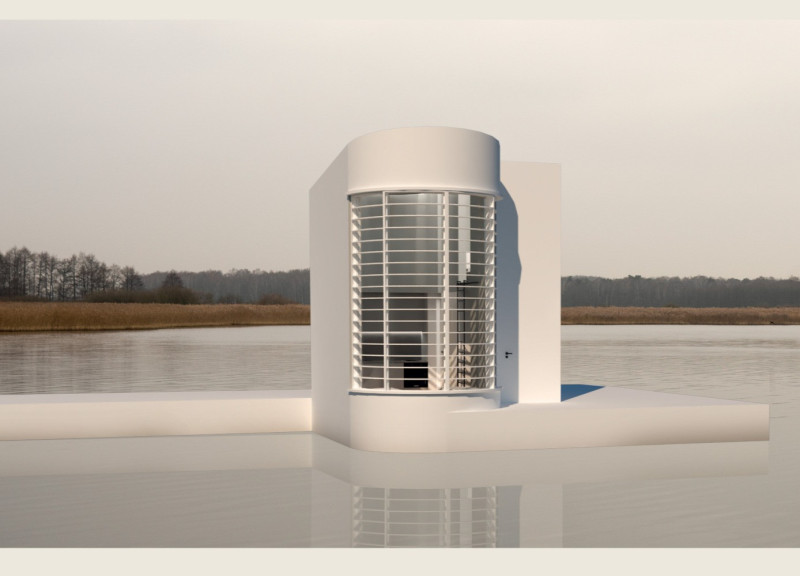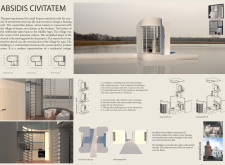5 key facts about this project
The architectural layout encapsulates the integration of sacred and profane spaces. Drawing inspiration from the historical church in Jamno, the project stands out for its innovative approach to communal interaction while serving as a residential unit. The floating design heightens its functionality by allowing essential systems like water and waste management to be housed within its structural base.
Sustainable Material Use
The project employs a range of durable materials to achieve its design goals. Concrete remains the primary structural element, facilitating the floating capability. Glass facades enhance the aesthetic value and transparency, crucial for maximizing natural light and providing views of the surrounding environment. Solar modules function as movable blinds, contributing to the energy efficiency of the unit and minimizing the reliance on non-renewable resources. This focus on materiality not only supports functional objectives but also aligns with the ethos of ecological responsibility.
Adaptive Spatial Organization
Absidis Civitatem features a highly adaptable spatial arrangement. The design promotes flexibility, with multifunctional elements such as a workspace that converts into a sleeping area, and variable seating that can be tucked away when not in use. The incorporation of a vertical access solution allows for efficient use of height, creating a mezzanine for additional sleeping quarters. This organization ensures that the unit, though compact, maintains a high level of livability and comfort.
The project serves as a modern reinterpretation of communal living, encouraging social connectivity while addressing practical housing needs. Its thoughtful adoption of durable materials and flexible spaces sets it apart from conventional architectural projects, providing a relevant solution to contemporary living. For a deeper exploration of its architectural plans, sections, and designs, interested individuals are encouraged to review the project's presentation for further insights into its unique architectural ideas.























